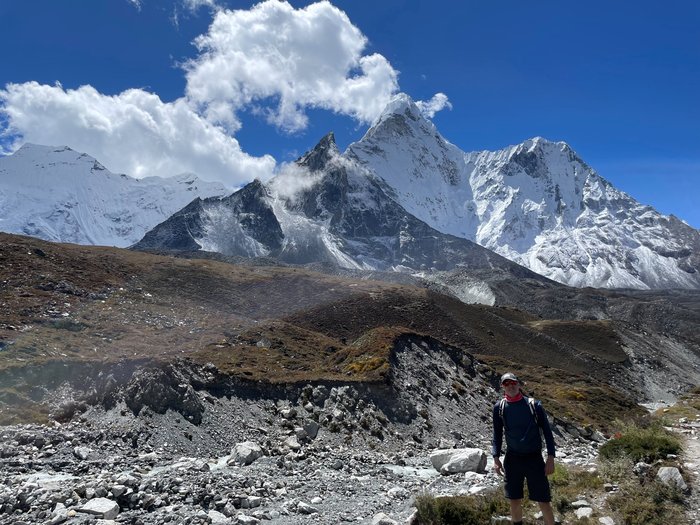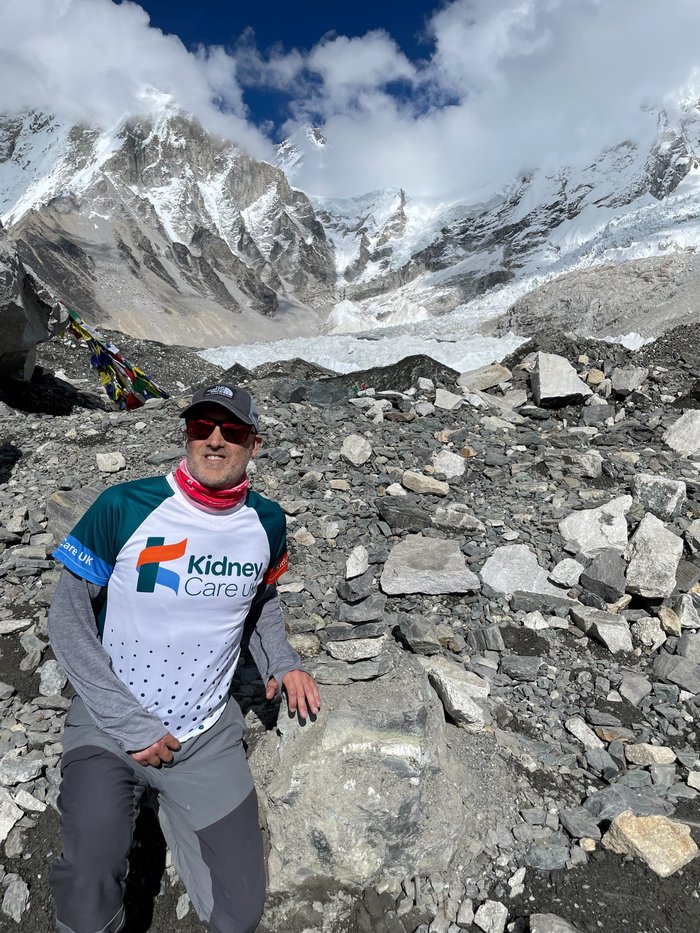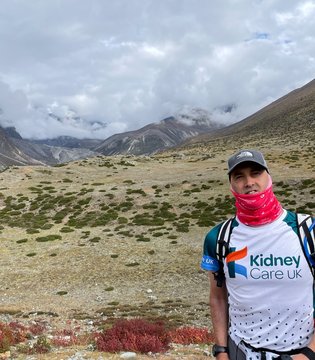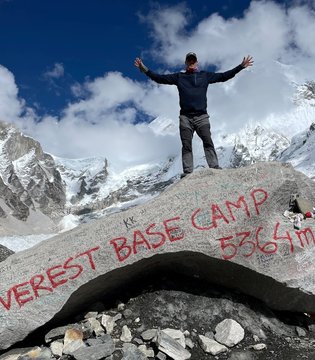From diagnosis to transplant
"I was diagnosed with Polycystic Kidney Disease around 2002. It was a genetic disease and my mum had it. After finding out a bit about my diagnosis I realised that ultimately, I’d need a transplant. Still, at the time I was fit and healthy and it didn’t register.
"It was in 2012, about five years before my transplant, that my health began to suffer. I was feeling tired and needed more medication. It dawned on me that the endgame of kidney failure was in sight and at that point it began to focus my mind. I got help from my renal team and my counsellor prepared me for everything. I was lucky that the team at the Royal Bournemouth Hospital held open days for people who have kidney disease. They had dietitians, people on dialysis, and Kidney Care UK were there too. That’s how I became aware of the charity.
"When my kidney function went below 10%, I was put on the transplant waiting list. It felt like a waiting game, and the doctors made the decision I had to go on dialysis. I had the tube put in, everything. Then, a week before I was about to start dialysis, I got the call from the hospital, and I managed to get a kidney transplant. My wife, dad, and I all bolted up to Bristol from Bournemouth for the operation. It was successful and my new kidney has worked really well. It was an emotional rollercoaster and I feel incredibly blessed and fortunate. The transplant was my second chance at life."
Mountain climbing, altitude sickness, and the mental toll of fundraising
"After the transplant I wanted to test myself and I thought, ‘If I’m going to push myself, I might as well raise some money.’ Then I thought about who I wanted to benefit, and the answer was anyone who has gone through what I have.
"It’s not just the kidney disease that affects you, it’s everything else that goes with it, from diet to health to psychology. I know how much good Kidney Care UK does. And ever since I had my transplant in June 2017, I’ve made it my mission to bang the drum for organ donation. You don’t want to be seen to always be asking people for money, but I try and do something every year. If can make one person donate or have a conversation with their family about donating, that’s made it all worthwhile.
"To raise money, I climbed Kilimanjaro in January 2020 and did Everest Base Camp in 2022. They were both gruelling trips for different reasons.
"Kilimanjaro was eight days, and I did a route called the Lemosho route. It was really tough – on the summit night we started at midnight and continued early into the morning. On that trek alone I burned about 12,000 calories. It was a steep ascent, and the summit was gruesome, but the Tanzanian people were wonderful. We had a great team, and it was a brilliant experience.
“On the way up I had bad altitude sickness, I was all over the place. After getting to the summit, I realised how close I had come to not completing the climb. Finally reaching the top was the best feeling.
“The Everest trek was longer than Kilimanjaro and was more endurance based. It was ten days of hiking, and it was gruelling. We did six to seven hours walking at altitude every day and I lost almost a stone doing it. As with Kilimanjaro, the local Nepalese people and the guides were fantastic. I’d had training to prepare, trekking near the Jurassic coast where I live every weekend. I also went to the Altitude Centre in London, cycling and running with a mask on to replicate the altitude. All the prep was because I decided that if I was going to do Everest, I wanted to get to the top. When we got to the climb, every step I took I was thinking, ‘Do I feel okay?’ But as with Kilimanjaro, when I completed it, it felt amazing.
"It takes a big mental toll, doing a challenge like Everest. You’re raising money so you want to show people you can do it because they’ve donated to you in good faith. You don’t want to fail; you want to complete what you set out to do. That’s the stress you put yourself under, but it’s natural. There was also the pressure of social media– what would it have looked like if I’d failed to get to Base Camp? It’s not a walk in the park; if it were easy, everyone would do it.
"There’s always a concern about whether your health can stand up – I remember thinking I didn’t want to end up with a urinary tract infection on the side of a mountain and get evacuated to hospital in a helicopter. Physically I knew I was ready; I was just hoping my health held up. You’ve trained and prepared, but can your kidney take it?"

The ‘warts and all’ of raising money
"I fund the trips myself, and 100% of the money I raise goes to Kidney Care UK. It’s important that I mention that when I’m fundraising. I don’t want it to seem like people are paying for my holiday!
"On my Just Giving fundraising pages, I made sure people understood that neither of the events I was planning were going to be a piece of cake. It was gruelling trekking at altitude, I’d be staying in places where there was no hot water. These are the things you need to explain and give a detailed description of. You’re putting yourself through your challenge for a good cause, and that’s the most important thing.
"People can’t always give money, so I’m always grateful for good vibes and best wishes. I would never put pressure on people to donate – if all they can do is email with a good luck message, that’s cool, that’s enough. Who knows, maybe next time round, they’ll be able to donate. And to be honest, if people can’t donate, they’ll at least know what Kidney Care UK is about. They’ll be aware of the organisation.
"If you decide to fundraise for charity, don’t feel you have to climb a mountain – anything you can do to raise money is good. I do what I do for my own reasons, to prove myself can do it, but that’s not going to drive everyone. Anything you decide to achieve will do good for other people.
"I’m focused on my challenges for this year – Mount Toubkal in Morocco and Mount Cotopaxi in Ecuador. If you can donate Kidney Care UK – or just send me good vibes and best wishes – I hope you’ll support me."


